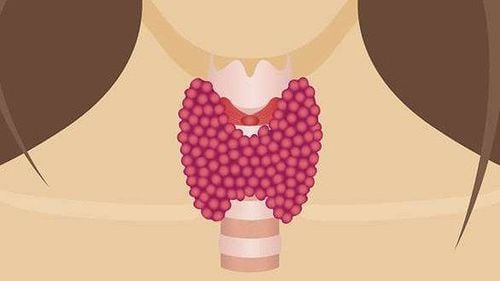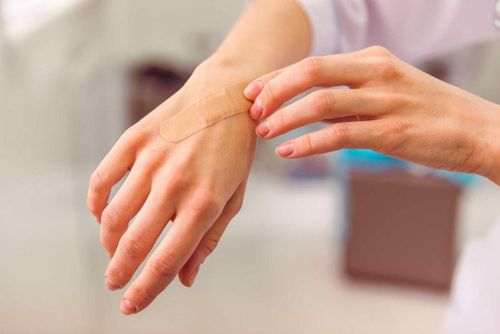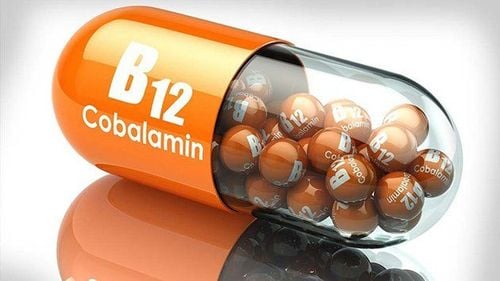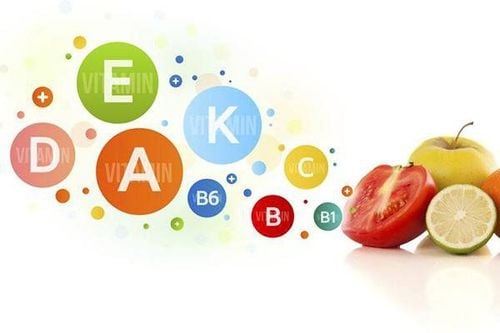Acne scars can heal over time, with the suitable skin care products and proper food intake. Therefore, if you want to find a way to bring out miraculous results from skincare products, your diet is exactly what you need. Here is a list of food you should eat if you want to remove acne and scars.
1. Skin affected by diet
In fact, the use of topical products only solves up to 20% of skin problems, the remaining 80% depends on factors from within the body. Therefore, changing your diet in a reasonable way will provide the body with full minerals, make the skin brighter, while reducing toxic ingredients, providing better acne treatment.
Acne is usually formed by hormonal changes in the body, so this condition is most common in young adulthood and adolescence.
In adolescence, the body produces a lot of hormones called growth factor (IGF-1) which is similar to insulin. Some studies have shown that IGF-1 can boost sebum production and make acne symptoms worse. Avoiding foods that contain IGF-1 can help improve acne symptoms and help prevent acne.
Clogged pores can result in acne
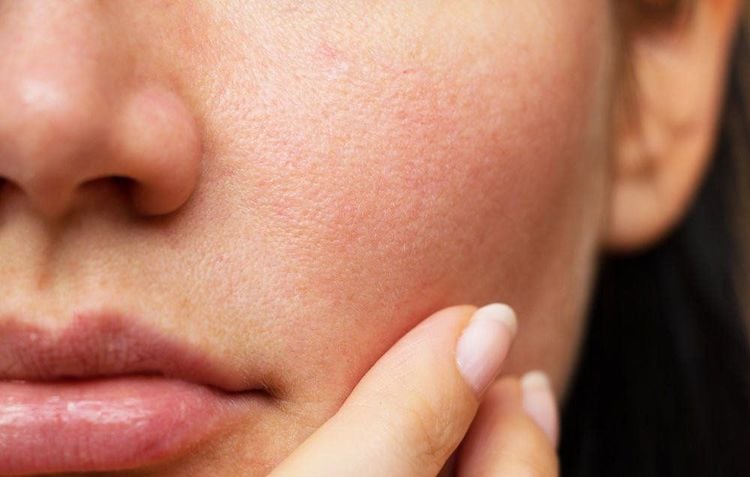
2. The principle of nutrition plan for acne skin
2.1. Prioritize the use of seasonal foods
Seasonal foods will be different from off-season foods because of the taste and higher nutritional value. Stimulants and pesticides are used on off-season foods, and eating them can lead to poisoning.
2.2. Prioritize cooking at home
Street food is very tempting, but they are usually unhygienic and their safety is questionable. In addition, processed food also contains a large amount of oil and spices.
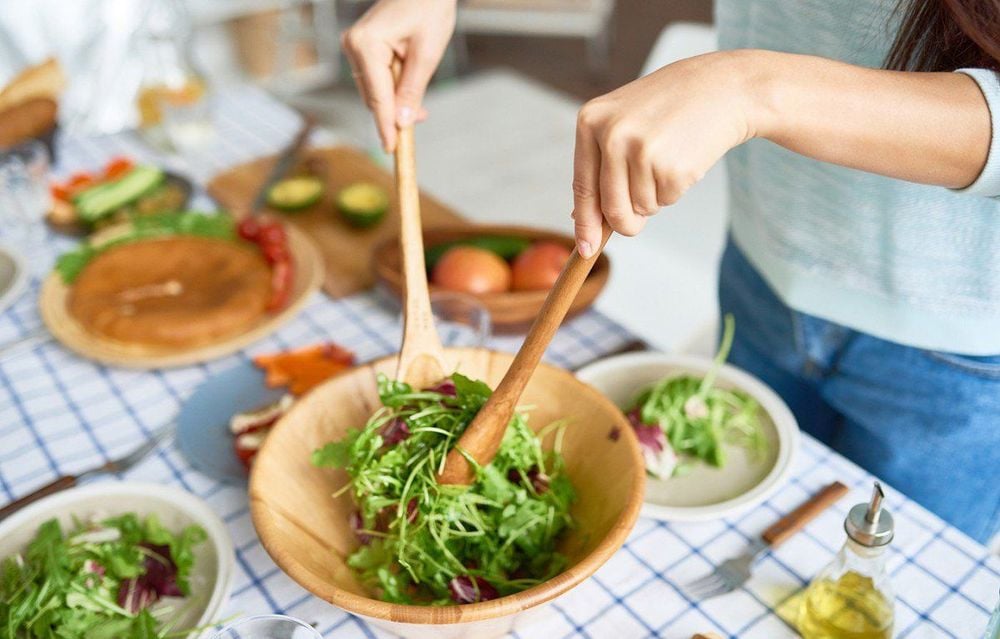
2.3. Balance between nutritional groups
Avoiding harmful nutrients is good, but you should not completely eliminate them to the point of causing nutrient deficiencies in the body. A balanced meal is one that includes the following main components: carbohydrates, proteins, fats, and vitamins and minerals.
2.4. Proper food processing
Steaming or boiling the dishes we love is the best way to avoid acne on our skin. Steamed food will limit the consumption of fat and reduce the production of inflammatory mediators, which is one of the causes of acne nowadays.
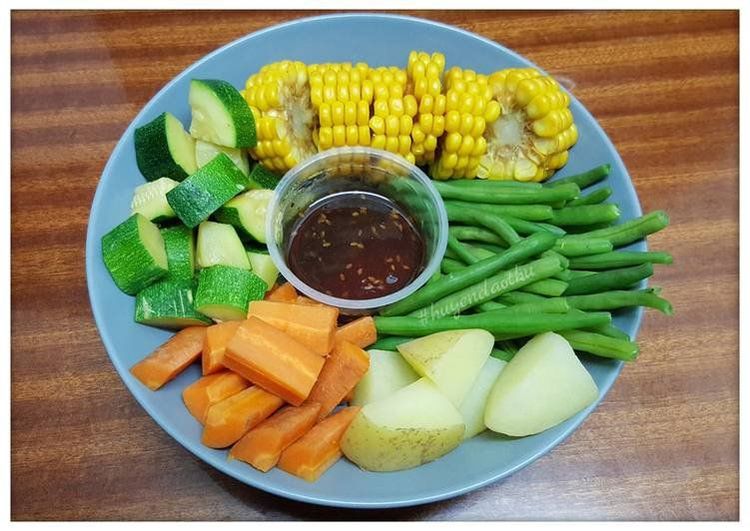
2.5. Plan the menu for the whole week
With busy work, many people don't have time, so they use processed food or buy fast food to finish a meal. This will lead to buying low-quality food that affects your skin. Make a meal plan for the whole week to ensure healthy meals for the family.
3. Nutritional foods good for acne-prone skin
3.1. Turmeric
As a common ingredient in skincare products, turmeric has been favored for its curcumin component, which has anti-inflammatory and antioxidant effects. These qualities target pores and soothe the skin. Also known for its scar-reducing effects, this could be your skin's best friend.
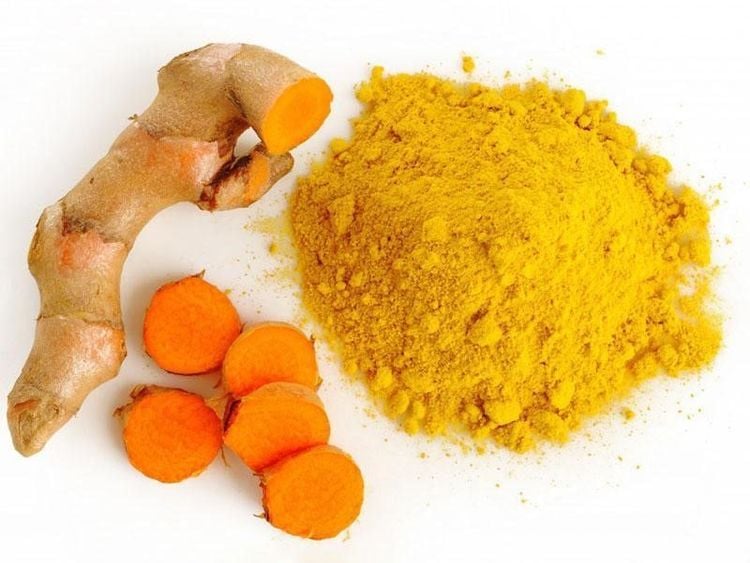
3.2. Berries
Although strawberries, raspberries, and blueberries are small in size, they are packed with antioxidants that help protect the stomach and against blemishes on the skin. They also contain vitamin C, a powerful line of defense against blemished skin.
3.3. Papaya
A type of fruit that we often see in skincare products is papaya which contains a digestive enzyme called papain. What are its effects? It exfoliates dead skin cells, unclogs pores, fades acne scars, moisturizes the skin, and prevents future acne. When consumed, its vitamins and minerals help improve skin elasticity and reduce wrinkles.
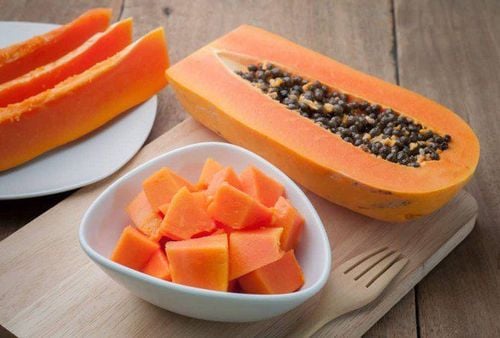
3.4. Pumpkin
Although this dish may be popular during the spiced pumpkin season, it is definitely much more than that. It contains many fruit enzymes, zinc, and AHA that help soften the skin and restore pH balance. Zinc also helps regulate sebum production, which is probably why it is a common ingredient in skincare.
3.5. Omega 3 Fatty Acids
Foods rich in omega-3 fatty acids, such as salmon, anchovies, sardines, and mackerel, contain many antioxidants that help reduce inflammation on your skin.
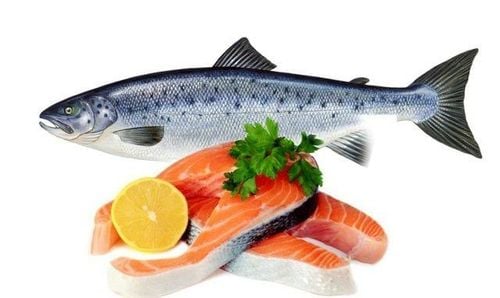
3.6. Sweet potato
Sweet potatoes contain a lot of retinol (also known as vitamin A), which helps improve the skin regeneration process, so that your acne scars heal faster. In addition to consuming foods containing retinol, let's also supplement our nutrition with skincare products that have a high retinol content.
3.7. Green cabbage
This anti-inflammatory vegetable has a high content of vitamins and minerals, and all of them are very good for reducing pigmentation on your skin, so your scars won't leave strange patches on your skin.
4. Good foods help prevent acne
4.1. Collagen
Collagen helps speed up the recovery of tissues in the body. Here are some foods good for the skin that contain collagen:
- Cucumbers and celery are water-rich vegetables and fruits with a high collagen content. Dark green leafy vegetables are also typical examples of skin-friendly foods that contain collagen-producing factors.
- Among fruits such as tomatoes, peppers, and radishes, there are many antioxidants and lycopene. Red fruits help increase collagen in the body. These substances also have the function of blocking sunlight, helping to protect the skin from damage and preventing dark spots.
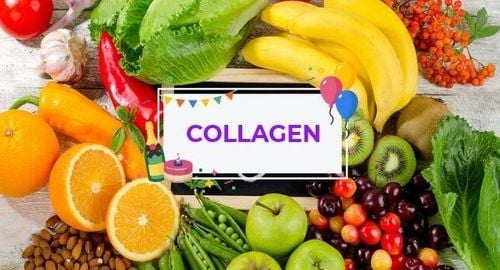
4.2. Protein
Considering that protein is one of the building components of skin tissue, it is no surprise that the adequate intake of this macronutrient is essential for healthy skin. Protein also contains two amino acids, specifically L-lysine and L-proline, which support the body's production of collagen.
Choosing the best source of protein for you. It really depends on your preferences, taste, ethics, and any allergies or intolerances you may have. It is important to note that not all protein sources are created equal. Animal protein sources such as chicken, beef, fish, eggs, and milk are often considered as "complete proteins" because they contain all the essential amino acids. On the other hand, plant proteins are considered "incomplete proteins" because they do not contain the complete set of amino acids.
4.3. Vitamin C
When you think of Vitamin C, you tend to think of its ability to boost the immune system and fight off colds and flu. However, not many people know that Vitamin C is an essential beauty nutrient, preventing signs of aging, strengthening blood vessels, giving skin elasticity and strength, and also regenerating other antioxidants in the body.
Vitamin C is very important because it boosts the immune system and slows down the degeneration process, thereby preventing the formation of early signs of aging. In fact, Vitamin C plays a significant role in maintaining healthy collagen, the supportive tissue of the skin.
It acts on connective tissue and is essential for the collagen synthesis process. Collagen helps keep the skin healthy, firm, youthful, and maintains its elasticity and ability to recover. Vitamin C is found in citrus fruits such as oranges, lemons, and grapefruits, amla, tomatoes, sprouted grains, and leafy green vegetables. Amla is perhaps the richest source of Vitamin C.
Fruits should be a part of the daily diet, as many of them are rich in Vitamin C. We all know that lemons are a rich source of Vitamin C and minerals. Adding lemon juice to a glass of warm water and drinking it in the morning will help the body detoxify and eliminate toxins. This helps brighten the skin and add radiance.
Oranges are also very rich in Vitamin C: Besides including them in your diet, you can use them for external skin care. Apply orange juice to the skin or add it to a facial compress. It helps restore the normal acid-base balance of the skin, remove sunburn, and minimize blemishes. Orange peel is a rich source of Vitamin C. It is said to contain more Vitamin C than the fruit itself. Dried orange peels and powder can be used for exfoliation and masks, to absorb oil and tighten pores.
Vitamin C is also a powerful antioxidant, so include citrus fruits, apples, tomatoes, etc., in your diet to help prevent oxidative damage and degeneration, slowing down the visible signs of aging. It also contains ascorbic acid, which helps with skin texture and creates an even tone.
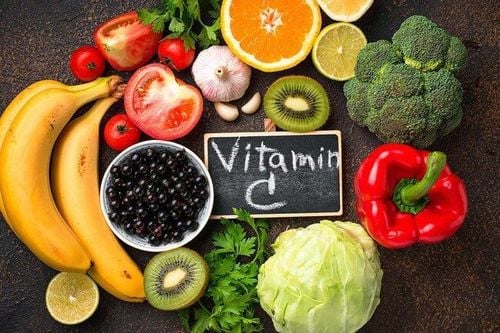
4.4. Vitamin A
In daily eating habits, if there is a deficiency of vitamin A, the process of wound healing on the skin will be affected. Vitamin A helps in the process of wound healing on the skin by stimulating collagen metabolism.
Foods such as yellow, orange, and dark green vegetables are also good for the body because they synthesize Vitamin A.
4.5. Zinc and iron
Our human bodies cannot produce protein and collagen due to a lack of zinc.
Meanwhile, iron plays a role in transporting oxygen to the damaged areas throughout the body, such as the skin. The common cause of wound infection is a lack of oxygen.
Thus, when the body lacks either of the two minerals, zinc and iron, it will halt the process of regeneration and recovery. Foods containing zinc include whole grains, meat, eggs, milk, oysters,...
To arrange an appointment, please call HOTLINE or make your reservation directly HERE. You may also download the MyVinmec app to schedule appointments faster and manage your reservations more conveniently.




